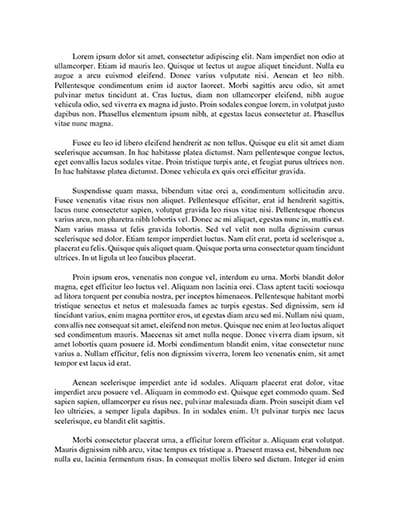The character of Bob Ewell serves the most condemnable one in the novel To Kill a Mockingbird by Harper Lee (1960). Hence, the author, with the help of this character, has attempted to condemn and discourage the infliction of injustice and discrimination towards the minority groups and communities co-existing with the mainstream population under the same social environment. It was Bob Ewell, false allegation of which gives a go to the future developments to be made in the novel. Even Ewell does not belong to the affluent stratum of society; somehow, he looks down upon the poor and particularly considers African Americans as inferior individuals. It is Bob Ewell, who is responsible for indictment and eventual conviction of Tom Robinson by putting allegations on Tom of raping his daughter.
He appears to be a cunning, revengeful and vindictive man, who does not have mercy or care for the children even. That is not the only that indicates his racial bias by blaming Tom for raping Mayella. He also demonstrates his vindictiveness, when spitting on Finch as well as attacking his children during the night hours with the aim of killing the children in cold blood. Besides, he is a lazy man and habitual drunkard and has been fired from his job because of his sluggish nature and addiction.
However, his act of uniting the white community under one banner, and convincing the jury to issue the verdict against the black accused proves him a successful statesman, who contains the capabilities of winning the favors of the masses, and mobilizing them in support of his stance, whether just or unjust. Hence, his shrewdness and cunningness assess the sentiments and emotional condition of the narrow-mindedness of the town people. They would not allow an African American even to think about tempting a white girl Hence, despite having low financial and social status, he is in a position of winning the jury’s side. Thus, Ewell’s character maintains profound significance in nature and scope, which provides the readers with the opportunity of making a distinction between right and wrong.
StudentShare


Our website is a unique platform where students can share their papers in a matter of giving an example of the work to be done. If you find papers
matching your topic, you may use them only as an example of work. This is 100% legal. You may not submit downloaded papers as your own, that is cheating. Also you
should remember, that this work was alredy submitted once by a student who originally wrote it.
Contact Us
Sign In / Sign Up for FREE
Login
Create an Account
The service is 100% legal
- Home
- Free Samples
- Premium Essays
- Editing Services
- Extra Tools
- Essay Writing Help
- About Us
✕
- Studentshare
- Study Guides
- To Kill a Mockingbird
- Character's Analysis: Bob Ewell

Character's Analysis: Bob Ewell
By Harper Lee
Release Year: 1960
- To Kill a Mockingbird
- Short Summary
- Part One: Chapters 1-3
- Part One: Chapters 4-6
- Part One: Chapters 7-9
- Part One: Chapters 10-11
- Part Two: Chapters 12-14
- Part Two: Chapters 15-17
- Part Two: Chapters 18-20
- Part Two: Chapters 21-25
- Part Two: Chapters 26-31
- Character Description
- Character's Analysis: Jean Louise Finch
- Character's Analysis: Jem Finch
- Character's Analysis: Atticus Finch
- Character's Analysis: Bob Ewell
- Character's Analysis: Boo Radley
- Characters' Analysis: Dill Harris and Maudie Atkinson
- Characters' Analysis: Judge John Taylor and Alexandra Hancock (Finch)
- Character's Analysis: Mayella Ewell, Tom Robinson, Calpurnia
- Main Themes
- Symbols
- Main Quotes
- Atticus Finch’s Quotes
- Scout Finch’s Quotes
Related Questions
- Who wrote To Kill a Mockingbird? What else is the writer famous for?
- What is to kill a Mockingbird about
- Who is the author of To Kill a Mockingbird and what beliefs underlie the book? What other book of the author has never been published?
- Name 7 Settings in Harper Lee’s novel To Kill a MockingBird. Briefly describe each setting of the novel.
- Why is it a sin to kill a mockingbird? What does a mockingbird represent? What are other explanations of this symbolic title?
Check these samples - they also fit your topic
Popular Guides
- How To Make Your Essay Look Longer Without Looking Stupid
- How to Write a Hook for an Essay: Catchy Ideas with Examples
- 135 Best Topics for Compare and Contrast Essays
- 60 Best Persuasive Topics For Essays
- Best Informative Essay Topics
- Argumentative Essay Topics: Art, Music & Movie Argumentative Essay Topics
- 138 Outstanding History Research Paper Topics and Free Help
- Macbeth Study Guide: Main Themes
- Macbeth Study Guide: Represent of Lady Macbeth
- To Kill a Mockingbird: Main Quotes
✕
- TERMS & CONDITIONS
- PRIVACY POLICY
- COOKIES POLICY